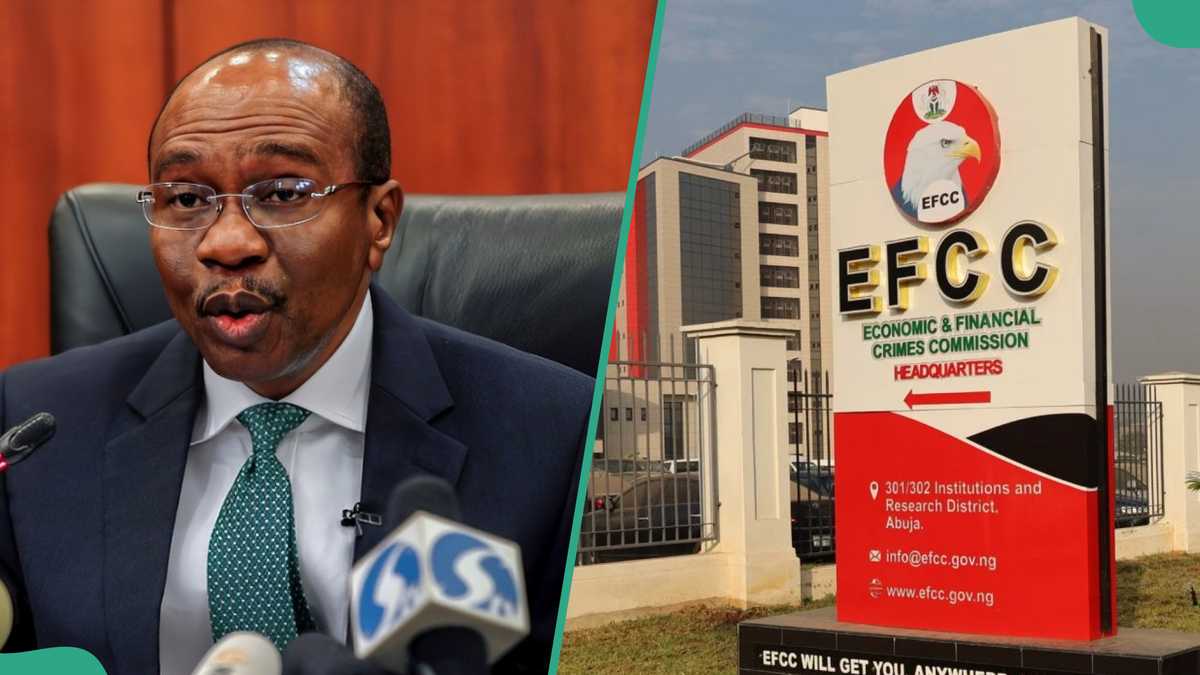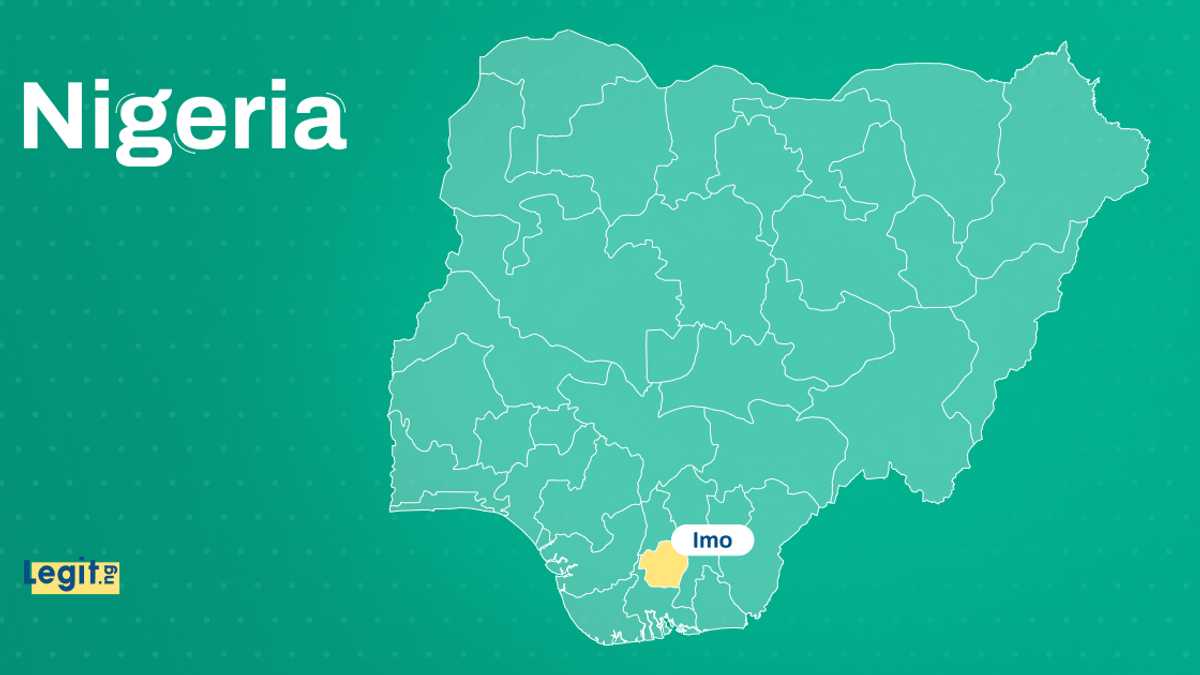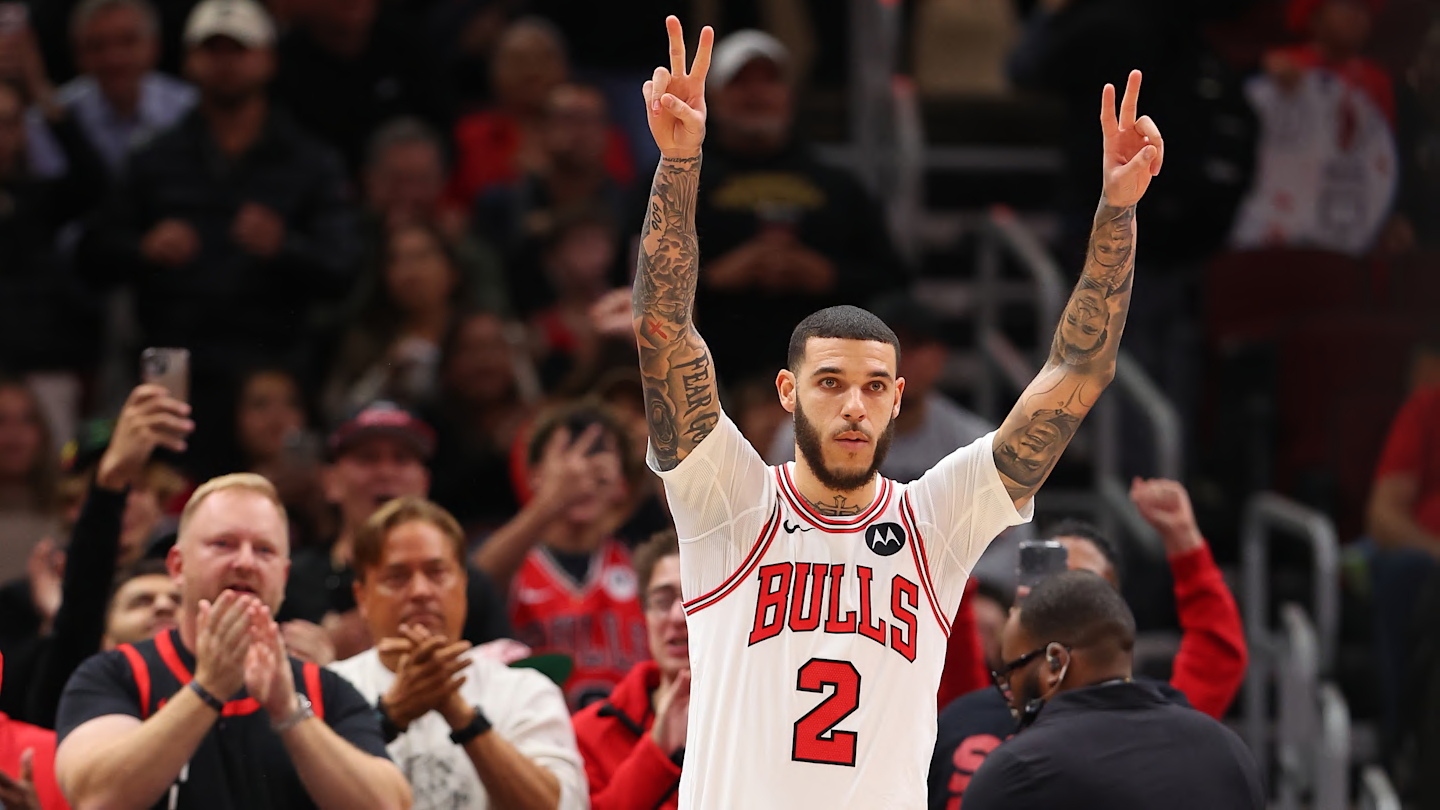Mark Cuban on His Mission to Transform Health Care and More
Oh my God.
I have, but definitely not in the playoffs, not in that moment. That was insane. Let me just tell you a backstory.
The year Halliburton came into the league, our analytics guy in Dallas said he was a superstar in the making. Everybody else, even our scouts, were like, “I don’t know.” We tried to trade up to get him, and his agent was like, “There’s no way he’s getting past Sacramento,” and we’re like, “Okay, we’ll try.” We tried. We tried. We tried. And this is the irony of the whole thing — in our war room during the draft, we were debating whether or not we should trade Jalen Brunson to get a first, to go after him. I called Hali on the phone and I’m like, “We’re trying. We’re trying to get you.” And then Rick Carlisle, our coach, who was in the war room at the time obviously, leaves the Mavs, goes to Indiana, and trades for him, knowing what he knew and what all the analytics people thought.
Always had that knack. He does it ugly — his shot isn’t pure, like what you teach to a kid learning basketball, but he gets it done, that’s for damn sure. And he was called the most overrated, right? More power to him. He is a good kid.
Cost Plus Drugs started with our retail presence, which is costplusdrugs.com. The genesis of it was I got a cold email from my now co-founder, Dr. Alex Oshmyansky, and he wanted to do a compounding pharmacy in Denver. A compounding pharmacy is a place that manufactures medications to spec, meaning if you have a specific need or a drug is in short supply, you go to the compounding pharmacy — and they’re all around the country — to have this specifically made for you. I was like, “You know what? That’s fine — not really big enough to be of interest, but you’re a smart guy.” The guy is like a rocket scientist, graduated college in his teens, won every award that was possible to win. He’s a doctor and an AI scientist. Just insane. It makes me feel stupid every time I’m around him.
We started talking. That was right around the time the Pharma Bro was going to jail. I’m like, “How is it that this guy can take this medication and effectively just jack up the price and there’s no consequence?” I said to him, “Obviously, it’s an inefficient market. What’s going on here?” As we started to talk and I started digging more, it was completely obvious that it was a lack of transparency. There is zero transparency in this industry. On the health care side, hospitals are now required to show procedures on their website and what they cost. But on the pharmacy side and throughout the rest of the industry, no one publishes a price list.
Absolutely. So, we decided we’re going to create this company called costplusdrugs.com. We were going to be different. We were going to show you our cost. We were going to show you our margins, our markup. We were going to show you what it costs to ship it to you, since we’re mail-order, and what it costs to have the pharmacist review it to make sure there’s no counter indications. We launched on January 19th of 2022 with 111 generic drugs, not knowing what would happen other than I was going to go out there and talk about it, because if we were going to be the lowest cost, we couldn’t be a marketing company. We couldn’t spend any money on marketing, for that matter. It was just going to be my big mouth.
We started off and, all of a sudden, it just took off and it became very obvious why. The reason is that these things called pharmacy benefit managers have not only maintained the opacity through their contractual language, but they create these tiers of drugs, something called a “specialty drug tier” that you see in Medicare, that you see in every plan. There’s nothing special about these drugs that are in the specialty tier other than it’s an open door for them to price them much more highly than everything else. We took a lot of those drugs that had generic equivalents, drugs like Imatinib, Droxidopa, and a long list of others, and priced them at Cost Plus. Literally, even to this day, three years later, if you walk into a major pharmacy and want to pay cash for some of these specialty drugs, they will charge you thousands of dollars or, at best, hundreds of dollars for things that we might charge $21 or $25 for. By doing that, we completely upset the applecart and changed the game. From there, in 2022 with 111 SKUs, we now have 2,500 SKUs.
Our biggest challenge right now on the retail side is that we don’t have a lot of brand-name medications. That’s because of the pharmacy benefit managers. Depending on where you want to do the cutoff, the six largest of them process 94 percent of the prescriptions that are filled in the United States today. The biggest three do about 80 to 85 percent. That gives them a lot of leverage, because they have these things called formularies, which are the list of drugs they’ll pay for if your doctor prescribes them. If you have control of 94 percent of the market or even 84 percent of the market, you effectively are the world’s largest sales funnel for every pharmaceutical manufacturer. By controlling that formulary or that sales funnel, you have all the leverage in the world.
With that leverage, they created this rebate system, where they go to the manufacturers and they don’t negotiate prices. They don’t say, “I want to buy this brand medication for $120 instead of $200.” They say, “Here’s the list price, and we want a rebate based on that list price.” The manufacturers say, “Okay, thank you very much.” The manufacturers know that if they don’t do what they’re told, they could lose access to the formulary — not only for specific medications, but for their entire portfolio of medications.
The PBMs are saying to the pharma manufacturers, “If you work with Cost Plus Drugs and give them rebates, we will diminish your positioning on our formulary.” The companies that control 85 to 95 percent of the prescriptions are telling manufacturers that they can’t work with Cost Plus Drugs on a rebate basis. That’s why we don’t have brand drugs right now.
Every CEO of a company that self-insures is complicit in how fucked up the health care system is. Because we have a fundamental problem at the CEO level, where they don’t understand their health care benefits at all, so they delegate it to HR or a benefits person, or more likely a third-party consultant, and the path to least resistance is to use the incumbent pharmacy benefit managers and insurance companies. As a result, it’s just the same thing over and over again. They sign these contracts, and the first line of the contract says, “You’re not allowed to disclose anything in this contract.”
So, I’m on the road all the time now, going and talking to CEOs and their benefits managers and telling the benefit managers, who are terrified of going to the CEO, that they’re getting ripped off.
If I’m able to convince enough CEOs — and slowly but surely that’s happening — then the whole industry changes. Because I’m not saying to a CEO, “Look, it’s going to be a little bit more expensive, but just give it time and it’ll pay for itself.” No, I’m saying, “We’re going to save you a fuck ton of money and your employees are going to be healthier and happier.”
That’s by design, because the more opaque it is, the less people understand and the harder they have to work to get information. That’s why we’ve been able to have such an impact. And that’s what I do as an entrepreneur — I try to find where all the leverage points are. I find out where the weaknesses are in the incumbents, and the weakness was a lack of transparency. I was listening to a health care podcast not long ago, and the person being interviewed gave a formula for trust. He said “Trust equals transparency divided by self-interest.” Meaning the more transparent you are, the higher the score. The less self-interest you have, meaning you’re more geared towards your patients or customers, the more people will trust you. Well, we’re transparent 100 percent, and we show you our margin, which is only 15 percent. So people trust us, and that’s really been an important part of what we’ve been able to do.
That’s the opportunity for us, because health care at its base is very simple. You go to the doctor. The doctor either gives you good news, medium news, or bad news. And if it’s medium or bad news, whether it’s a prescription or some level of care, the only two questions are, “What does it cost and how am I going to pay for it?” That’s it. We trust our doctors, we go to our doctors. But once we get into the economics, there’s nothing straightforward or simple or transparent about it, and they know it, and they’ve been able to use that or create that opacity to increase the cost of everything to the point of $4.9 trillion. So my mission is to say, “Okay. We know about the pharmacy side. We’re learning on the health care side. Where are the breaking points that can change the power dynamics in this whole industry?” They’re really straightforward, believe it or not. They’re not complicated.
One element of our business is the website. That’s what most people know. I get emails weekly, if not daily, from people — I got one a couple months ago: “I was going to have to pay $903 for this chemotherapy drug. I was only going to live two more years no matter what, and I don’t want to saddle my wife with these credit card bills after I’m gone, of thousands of dollars. I was just going to go off my medication, and then I found you guys, and it was like $23 a month. So, you saved my life and you saved my wife.” I get these stories all day, all the time. We know we’re having an impact on that side of the business.
The second side of our business is manufacturing injectable medications mostly that are in short supply in our generic. Believe it or not, in our system today, there are common drugs like Pitocin, pediatric cancer drugs that I can’t even pronounce the name of, that go in short supply. That’s by intention, because the people who had been making them wanted some priced to market, so they won’t build for inventory at all. They won’t build in order to allow hospitals the inventory, knowing when it goes on short supply for whatever reason, they can sell at a premium.
So we come in and we say, “Okay, we built this robotics-based manufacturing plant in Dallas, Texas, and we can roll over to new products in four hours time.” And we can sell these drugs in short supply to hospitals for far less than they’re paying right now and still be able to make a little bit of money on that. That’s the second part of our business.
The third part of our business is called Cost Plus Marketplace, and it’s designed for hospitals and clinics, dialysis centers, or whoever, to effectively buy medications and make them available or administer them to patients. It’s crazy — you would think there would have been an efficient marketplace for these big hospitals and big clinics to buy their drugs, but there wasn’t. So we set up Cost Plus Marketplace to sell it at a set markup — I think it’s 10 percent or 12 percent.
You can Google the press releases. Penn Medical saves 4 to $5 million a year, and the list of hospitals that are buying from us now is just growing by the day, and that’s also having a huge impact on saving hospitals money. That’s generally our business. And we also have a retail pharmacy network that we work with, so that if somebody doesn’t want to buy via mail order, we can send them to an affiliated pharmacy. We allow that local pharmacy to charge a $12 fill fee so that they get paid for their services as well, which the independent pharmacies love because, otherwise, they’re going out of business left and right.
That’s why it takes a lot of time. But it’s fun. The ability to have an impact like this is insane. With the Mavs and everything, the impact on the community — it’s the only industry where you throw a parade. If the Knicks win or Pacers win the championship, there’s going to be a ticker-tape parade in Indianapolis or New York, and the whole city will shut down. Sports do that. You don’t see that in any other industry. But I have people walk up and hug me and I think, “Oh, Mavs fan.” It’s like, “No, you saved my life.” When it’s all said and done, if we can change the health care industry like I truly believe we can…the reality is, the disruption we’ve already introduced to the pharmacy side has been easy. Of all the industries I’ve ever been in, this has been the easiest to disrupt.
It shouldn’t, because all we had to do was be transparent. When we published a price list, that was the smartest thing we ever did. We didn’t even understand the impact that we would have because now all these researchers can compare: “Here’s the Cost Plus price versus what Medicare paid, what Medicaid paid, what I paid out of pocket.”
Yeah, 100 percent.
And stepping away from Mavs, as well. This is my baby.
Well, we can talk about draft odds, because that’s another thing people don’t understand. They changed the draft lottery so that the top three teams have a 14.3 percent chance, which means even if you’ve got the very worst record and you have the highest odds of getting the first pick, there’s still a greater than 85 percent chance that you’re not getting the pick. People don’t realize that.
Yeah, which is entertaining. By the way, it only costs me $100 million to get that pick.
Just kidding, obviously. There’s been a bunch of times when teams with under two percent odds have gotten the pick, and it’s not inconceivable the way things are designed.
Oh no, I wasn’t surprised at all. Biden wouldn’t see them! He wouldn’t have taken a meeting with me either. That had a lot to do with it. I talked to some of them and it was like, “We want to talk to the guy to see if there’s any roadblocks.” Because as you’re seeing now with artificial intelligence, it could be a winner-take-all business, and the last thing you want is uncertainty. While you may or may not agree with Trump’s policies, putting David Sacks there at least gives you some hope, because all the people that showed up know him, and they at least have an understanding of what’s going to happen while they’re trying to win this war they’re spending $60 billion a year on. Think about that.
But tariffs aren’t on software. Tariffs aren’t on AI. Maybe Google glasses, maybe Meta glasses, which are a small chunk of their business.
But think of it — If you’re investing 30 to $60 billion a year and you need the support of the president of the United States, no matter who it is, that investment may be zero sum. It may be that there’s only one winner or one winner and a very distant second, third, fourth, fifth place. It’s a fiduciary responsibility to your shareholders and employees to go and do whatever it takes, even if it means kissing the ring. How could you not do it?
I know, but you had been coming out of Obama, and there was a whole different viewpoint. Obama was very…I won’t call him tech savvy, but tech supportive.
Yes. You didn’t have Elon at that electric vehicle summit. Elon was the first to say, until the assassination attempt, he didn’t support Trump. But Biden wouldn’t see them, didn’t include him in a meeting on EVs. That’s just stupid. I feel bad saying Biden’s stupid now, given all we know. But if you truly believe, like I do and they do, that AI is the future of all things economic for any country and every country and we’ll touch every human being on this planet, how can you not?
Everything.
I am an AI maximalist, if you want to call it that, but there’s always the question of timeline. I’m not an AGI believer — I don’t think there’s going to be some smart AI in the sky that controls everything, because AI has got to be trained, and none of the big AI companies have equal access to intellectual property. Everything that we’re talking about right now — let’s just pretend it has real value instead of just being another article. You have the choice now and Vox has the choice now of who to sell it to. But let’s pretend rather than a general discussion we’re having, it’s a discussion on quantum physics, or it’s the equivalent of E = mc2 or the theory of relativity, and they decide not to share it. They want to keep it for their own model, or they want to get paid a lot of money for it.
There’s going to be competition for all that IP. Every hospital I visit, I tell them, “Do not publish everything that you do. Your most critical IP, you keep to yourself so that you can either sell it, partner with other hospitals, or create your own models on top of open-source models and make it available in your way, so you retain your brand.” Because in a world where you’re competing with AIs — ChatGPT, Perplexity, Google just came out with some amazing stuff at Google I/O — you’re competing in this arms race where everybody just one-ups everybody because they know they have to spend all that money. But because they’re competing, in my opinion anyway, it’s going to be difficult for there to be just one overlord AI. Instead, we will find new ways to do everything.
There’ll be a continuous optimization of all things that happen in every and any business, and we’re just in the first inning of all of that. But companies will still have to learn how to use it. There’s going to have to be people who understand the differences between models, people who know how to prompt to get the right answer, people who know how to prevent hallucinations. It requires a significant skill set. It’s just like the people who read the most within any given industry — you tend to look towards them for their perception, for their feedback, for their opinions. AI is just all those people combined. But because there’s so many inputs, there’s no way any two AIs are going to give you the same output on the same thing other than basic mathematics or maybe some coding, which is built on math.
People are going to have to be smarter on how to use AI. But if you can use AI, you can be as smart as the smartest scientist on everything that’s been published and made publicly available. And that allows everybody to compete. It allows everybody to start a business. It allows everybody to have access to the world’s greatest library and professors and ask them questions. And that just changes the dynamics of everything we do.
I had to get a heart ablation. I’d ask ChatGPT questions; then I’d run them through Gemini to compare the answers; then I’d check on Perplexity just in case there’s something different, and then I talked to my doctor about it and tried to confirm or get their various opinions. Being able to use all that information and use all these tools that are just getting better and better and better by the day, is a real skill, but it’ll also change how we live our lives and how we do business.
Well, it’s like health care, right? You don’t know. The minute that doctor tells you something isn’t right, and you need some level of care, everybody’s terrified because you don’t know. And I’m not saying your health is the equivalent to what AI is, but it takes a lot of effort to keep up with all things that are happening in AI. I’m fortunate I’ve been in this industry long enough — I remember the early days of technology when everything changed every day. There were magazines like PC Week and PC Magazine. I would read PC Week every week, and I had to read it because I had to learn what was happening. AI is that on steroids, where they’re spending billions of dollars to improve all the technology. Not everybody’s got time to keep up with it.
Every speech that I give, whether it’s politics, whether it’s health care, whether it’s sports, whatever it may be, now, I always ask, “How many of you use ChatGPT or an equivalent?” It’s rare when people don’t raise their hand. And then I’ll ask, “How many people use it every day?” It’s rare when people don’t raise their hand. Everybody’s using it, so that means everybody’s seeing value.
I was around when the first calculators came out, and there was a big argument about whether or not you can use a calculator for a math or statistics test. It was the same thing. “It’s cheating. If you can’t do it on paper, you don’t understand it.”
No, the challenge isn’t that kids are using it. The challenge is the schools haven’t adapted to the fact that it’s available and that kids are literate in using it. So the question becomes, “Is there a path to use AI to make kids smarter and understand topics and be able to think constructively? I think there is.
I haven’t done a ton of thinking about this, but it’s almost like you have to change it to Jeopardy!, where you have the answer and you ask what the question is. “Shakespeare said, ‘To be, or not to be.’ Tell me the prompts that it would take to get there and take me through your work and the different prompts.” Because if you’re only a first-level prompter — I’m pretending I’m the teacher here: “I’m going to give you a failing grade, because you don’t know the questions to ask to understand why he wrote ‘To Be, or Not To Be,’” or whatever it is. “How did Einstein get to E = mc2? Why did the Pacers trade for Tyrese Haliburton?” Whatever it is, prompting requires cognitive skills to know what questions to ask. In your job, you need to know what questions to ask based on what you’re hearing. It’s no different. You need to be able to intelligently ask the AI questions and to have the intelligence to understand whether the output is accurate and relevant to what you’re trying to accomplish. That’s a skill set.
Yeah, but that’s okay, right?
It’s not like we’re looking at education and saying, “Boy, it’s great.” And then you see the anecdotal examples of the school in Texas where they spend two hours a day with AI and the rest on interpersonal skills and playing on the playground, and they’re doing better on their test scores.
You can just Google “school AI Texas test scores.”
Yeah, it’ll tell you.
Well, there’s always a doomsday scenario. There’s definitely a doomsday with AI, but you’re just picking your poison. Do you want some autocrat with a finger on the button or AI?
Look, I try to be really pragmatic. I’m not dogmatic about anything. I’m an independent. Just like I look at a business, I try to look at this objectively, and the business of Donald Trump is a business. He certainly puts self-interest above all, but I can understand why his supporters continue to support him, even though that number has declined because, I think, of the people on the fence. But put yourself in the shoes of a MAGA supporter. He said he was going to shut the border. Did he shut the border? Check. He said he was going to deport people. Now, we can argue whether or not he’s violating due process, but he hasn’t really violated court orders nearly as bad as he could, right?
He’s toeing the line. There’s the one example, “the citizen from Maryland,” quote unquote, where he hasn’t returned them, but there’s been 50 other scenarios where he could have done worse. I’m not saying I agree with it. I don’t. I think due process is important, and I think it’s a real issue when he tiptoes around it. But when I look at his supporters and try to be pragmatic, he’s deporting like he said he would deport.. He’s closed the border, like he said he was going to close the border. If you’re a white guy who thinks you didn’t get promoted because of DEI, he’s your best friend, because he’s opened doors. It may not be real. But if you believed it to be true and he eliminated that box that you feel was holding you back, you still love him. If you can’t get a construction job because there’s too many immigrants that are taking those jobs for less, you love him because he’s deporting those people.
Now, if you happen to be Venezuelan and Cuban and under TPS protective custody, particularly since you spent, what is it, $562 to get your plane ticket plus another $1100 or something just to come into the country and you got ripped off, basically — you’re pissed. I would be pissed too, if I was in the Venezuelan, Cuban, Latin community, where he’s overturning TPS. But I understand why his supporters support him. I don’t believe it’s a cult like other people do, and I think it’s a mistake when the Democrats do that. I think the Democrats’ problem right now is they want ideological purity.
Yes. Democrats, I think, are understanding that they have to get away from ideological purity, that they have to be pragmatic, have to be objective, and have to put themselves in the shoes of the 150 million potential voters not in the Democratic party. That’s always been their missing link. That’s why I like being an independent. Democrats, in my experience, want to project forward — they want to extrapolate. “This is what I’m seeing, and the obvious next thing that happens is this. If you don’t see that and understand that, the problem is you.”
Republicans, on the other hand, say, “This is what’s happening to me right now, and I know that there are other people who are feeling this, and we are going to aggregate those people by telling them they are not the problem. Everybody else is the problem.”
Of course.
Well, there’s two parts to that. Is there anybody who doesn’t look and say, “There is no leadership”? No, I don’t care who you are. You think the same thing, right?
I think that’s the Democrats’ problem. The Democrats are searching for answers on what happened in 2024. I’ve spoken to lots of groups. I spoke to the ModSquad, I spoke to all these different groups, and I’ve told them what I just told you about being pragmatic and looking at it objectively, but there is no leader per se.
And there is no Republican party, there’s only the Trump family business masquerading as the Republican party, and so they just fall in line to what he wants. Just look at the Big Beautiful Bill. It’s the antithesis of what the Republicans said they would do during the campaign. I was out there going for Kamala, and that’s what I heard all the time: the deficit, prices, inflation. None of that matters because, to the Republicans, they don’t have foundational principles. I was talking to somebody who is a real influencer with Republicans and has been for years, and I’m like, “What are the foundational Republican principles right now on the economic side?” and they’re like, “We want to tax people less than the Democrats.” I’m like, “That’s all that’s left? That’s it?”
If you think about it — again, being pragmatic — they follow him because he’s giving them what they think they need or what he’s convinced them they need. But they’re not out of whack. He’s not telling them they need to have licorice chewing gum in order to be healthy, even though maybe somebody might try it. He’s telling them, “You didn’t get your job because of this, and I’m going to fix it,” and he did. “Housing is more expensive because the border is open. I’m going to fix it,” and he did. That’s not a cult.
Okay, let’s talk about that. He doesn’t understand tariffs. That’s a given. But he’s three out of four. If he’s shooting 75 percent from the line, you think, “Okay, he’s telling me these tariffs are going to work. They may be short-term inflationary, but, long-term, it’s better for building manufacturing in my community.” If he got three out four, would you give him the benefit of the doubt on the fourth?
Like I said, the Republican Party is now the Trump family business. There’s other things he got right, and I think what cost Kamala the election was crypto.
Oh, without question, 100 percent, and I can’t tell you how many Democrats have agreed with me, not that that matters. There’s data that says more than 40 percent of young men of color under the age of 29 own crypto. Kids today — their banking is different than you and I growing up. You probably remember when you got your first bank account, wrote your first check, and were excited about it. Young kids, today, particularly kids of color — that’s not their experience. They downloaded Robinhood or Coinbase. They did a direct deposit from work, even if they’re just making $12 an hour, and they bought $37 worth of Dogecoin and $6 worth of Bitcoin. Every morning, they’re getting on Reddit going, “Doge to the moon, baby. Bitcoin go to $200,000,” and that is their entire net worth.
Now, if you have two parties, and one says, “I believe in this. I’m going to make it easier.” Translation: your net worth is going up. The other party — Biden’s SEC chief Gary Gensler, and I said this on Twitter and to his face, I said, “You are going to cost Kamala the election.” He said, “Well, that’s not part of my job. I don’t care.” Every day he was saying shit that pushed down the price of crypto. Effectively, because of the security rules and the way he was approaching them through litigation, he was suing foundations and people involved with the crypto that 40 percent of kids of color owned. Basically, he was saying, “Fuck you. I’m taking your net worth, whether you like it or not.” Who are you going to vote for? And when you look at those numbers, 248,000 votes across seven swing states and you look at the polls, and you’ve seen them, where they say young men, particularly young men of color, switched in record numbers…
No, far from it. What did they talk about on the podcasts? I did all those podcasts but Rogan. You talk about girls. You talk about drinking. You talk about the times you weren’t just drinking, you got fucked up. You talked about sports.
No, not really even — they’re just trying to entertain. And who goes on Andrew Schulz’s Flagrant? Bernie Sanders, Pete Buttigieg, and they have good conversations. I did Theo Von. Theo Von told me he’d love to have Kamala on and he’d treat her fair. Kamala wouldn’t do it.
They’re like, “Oh, we’ve got to create the equivalent.” You can’t create the equivalent.
Joe Rogan’s been doing it for how many decades, building his brand. Theo Von leveraged Joe Rogan to create his own. Andrew Schulz has been touring and selling out comedy venues, including Madison Square Garden, for how many years. The Nelk Boys, same thing.
No, and it’s not about politics. They just happen to support Trump because Trump went and talked to them and talked about girls, drinking, crypto, getting fucked up, sports. Guys connected to that.
By the way, Kamala could have. The first time I met Kamala, she invited me to lunch in 2024, probably early 2024. She was, “Fuck this, fuck that, fuck this,” I’m like, “We can curse?” She’s like “Fuck, yeah, we can curse.” I’m like, “I like you.” We were just getting along, but her team would not let that side of Kamala come out and would not let her do those interviews.
No, because I want to change health care.
He can. But you’ve got to kiss babies, right? You can’t focus on health care. Plus, who the hell would put their family through that?
Neither do I.
Yes. My kids are 15, 18, and 21. That’s the last thing they want their experience to be, and it’s hard enough being in my position and having them be as normal as possible. Each one of my kids, I have to have a conversation: “When you’re out with your friends, you have to assume there’s a camera on you right now waiting for you to mess up. If your friends get sick and drink too much and puke, nobody cares. If you do it, you’re a meme.”
No, they hate it.
Last thing: You’re a big Bluesky guy. I like it, but I do find that it’s a little insular. How are you feeling about it?
They’re blowing it. They didn’t blow it yet, but they’re blowing it. I’m an investor. It’s a minimal amount, a couple hundred thousand dollars. I own a fraction, not even one percent, so I have no say. They do ask me questions from time to time, although that’s diminishing now. They have very lofty goals in terms of decentralized social media, which is great, but they do nothing to expand the user base. Their user base grows when something unique happens — the inauguration or something that pisses off Democrats. But even Joe Biden, when he announced his cancer — and let’s hope Joe gets better — he announced it on Twitter.
They don’t go out there and market at all, and it’s a lost opportunity. People talk about, “You need an equivalent to Joe Rogan.” You have it with Bluesky. There’s 36 million users. But because they’re decentralized and transparent, I check the numbers of how many users they’re adding every single day, how many likes, how many follows, how many posts, and they’re declining rapidly. That’s a marketing issue.
I do remember that Twitter was a slow burn. It took years to become what it was. I don’t remember them marketing that much.
No, they did. They spent money on marketing. And TikTok spent billions on marketing. But I’m not saying Bluesky should spend money on marketing. What I’m saying is instead of having this big picture view of, “We’re saving the world,” they need a diverse set of users. It’s just like on Twitter — there’s a lot of ideological purity requirements or you’re going to get shit. Now it’s the exact same thing on Bluesky. I still like it because there’s things like EconSky, FinSky, AgSky, NBASky, where the conversations are good and there’s not the ideological purity necessities. But if you get into politics or anything — on Twitter, it might be something hateful in its way. On Bluesky, it’s like, “Why do you exist as a billionaire? Give all your money away.” Or “I like you. You’re the nice billionaire. We’ll eat you last,” which I’m fine with. I don’t really care, but that makes it harder to engage.
What’s happening now is it’s bifurcated. I go on Twitter. I was gone from Twitter, for the most part, for months after November. I had wanted to reach people who didn’t agree with me, and that’s where the people who didn’t agree with me were up through the election. I was hoping, as it grew, that Bluesky would get people with a variety of interests and enough scale in these interests or verticals that it could be a captive discussion. But if I want to talk about pharmacy, healthcare, business or anything AI, or reach most politicians, I’ve got to be over there. If I mention AI on Bluesky, or if I post anything AI generated, I am getting a hundred replies telling me how I’m the antichrist, et cetera. I’m literally the fourth most blocked person on Bluesky. I’ve got the second most followers, but I’m the fourth most blocked.
This interview has been edited for length and clarity.












